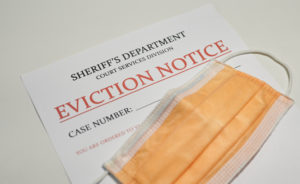
When experiencing a health issue, sometimes getting to the doctor is hard enough. Many times, you have to book an appointment far in advance and then sit in the waiting room for hours, only to get an average of 15-20 minutes with the physician. If you suspect a second opinion of your diagnosis may be required before moving forward with treatment, you run the risk of going through the whole process again. But sometimes, getting that second opinion can be the difference between life and death.
Misdiagnosis or failure to diagnose can cause irreparable injury or even death that could have easily been prevented. Your doctor may be at the top of his field, but he is not perfect. Even a simple diagnostic error leads to 12 million misdiagnosed patients every year. Given how common this is, asking for a second opinion is very normal and will not offend your doctor. A 2017 study found that 21% of those who sought a second opinion were completely re-diagnosed, while 68% had partially adjusted diagnoses. Most of the time, these failures were related to poor judgment, such as ordering the wrong test, misinterpreting results or not considering other possibilities.
Some diseases or conditions are commonly misdiagnosed because they share symptoms or are difficult to pin down. Just a few examples:
- Fibromyalgia – can be confused with arthritis, chronic fatigue syndrome, even depression.
- Heart attack or stroke – can be confused with simple indigestion or migraines.
- Celiac disease is an autoimmune condition that goes undetected or misdiagnosed in more than 80% of patients.
- Depression – can be mistaken for physical ailments like headaches and stress.
- Chronic diseases like lupus, Parkinson’s disease and multiple sclerosis.
- Certain types of cancer – some are misdiagnosed almost half the time.
Do You Need a Second Medical Opinion?
With so many possible outcomes to symptoms, how do you decide if it’s necessary to search for another opinion? Suppose you have a life-threatening diagnosis such as cancer or one that affects your quality of life, like bone and joint conditions. In that case, it’s vital to know everything you can about each possible diagnosis. You need to make sure that all tests and treatment options have been offered to you. A simple error or careless omission can often make the difference between a fast recovery and a debilitating one. These health conditions are also likely to be part of your world for years, so building up confidence and trust in your treatment plan and physician is important. And a second opinion doesn’t always mean a different one – it can be very empowering for patients to hear another physician agree with the initial assessment of their issue.
Medical researchers have determined “The Big Three” conditions that account for nearly 75% of consequential misdiagnoses: vascular events (arterial diseases, aneurysms, blood clots), infections (hepatitis, HIV, sepsis) and cancers.
If your condition requires surgery – normally used as a last resort – you will want to confirm the accuracy of your diagnosis before going under the knife. The same goes for ambivalent symptoms that can be attributed to many different maladies. If you test negative for a condition and have a strong feeling the test may have missed something, or if you try a treatment that results in no change, you have every right to speak up and advocate further testing for yourself. It’s often only when patients stand up for themselves, rather than just accepting the doctor’s first instincts, that they get any chance at a further investigation into their issue.
What To Do Before Your Second Opinion Appointment
When you have decided to seek out a second opinion, here are some steps to take:
- Gather your complete medical history from your current provider, including tests and lab results.
- Feel free to accept a referral from your doctor, but try to see someone who works for a separate practice or facility.
- Know your insurance company’s policy on seeking additional diagnoses, so there are no billing surprises later on.
- Have the second physician review everything the first one found and collaborate when appropriate.
- Do your research and come with plenty of questions.
When Errors in Medicine Lead to Medical Malpractice
Sometimes, despite your best efforts, your final diagnosis will be the wrong one. The circumstances of the misdiagnosis can range from honest mistakes to negligence. When this negligence leads to permanent injury or death, this is called medical malpractice.
For an error to qualify as malpractice, it must be proven that the physician committed gross negligence. For example, if a comparable doctor would have made a totally different decision in an identical scenario. You must also prove that you had an established relationship with the provider and he/she did not meet the expected standard of care.
Some states, including New Jersey, require a signed affidavit from a provider’s peer in the same field that this standard of care wasn’t met. You must prove physical, emotional, or mental harm came directly from the misdiagnosis. You may be entitled to additional damages such as out-of-pocket expenses and lost wages, but it can be very hard to prove that what happened to you was malpractice. Because it is so challenging, obtaining an attorney experienced in New Jersey medical malpractice is essential. And if you think you or a loved one are a victim, you only have two years to file your suit in New Jersey.
Related: Is It Just a Headache or Something More Serious?
The team at D’Arcy Johnson Day specializes in medical malpractice and can help you determine the best legal steps to take. Call us toll-free anytime at (866) 327-2952) or contact us online for more information or a free consultation.

As a partner with D'Arcy Johnson Day, Andrew D'Arcy has been involved in some of the nation’s most high-profile cases and investigations. His practice includes serious automobile accidents, medical malpractice, wrongful death and product defect cases. Andrew has been personally responsible for numerous multi-million dollar settlements and verdicts on behalf of his clients. He has been recognized by his peers as an "AV" rated attorney, the highest possible rating given by Martindale-Hubbell publication. Andrew has been named a "Super Lawyer" by New Jersey Monthly magazine each year consistently since 2013.















Comments for this article are closed.